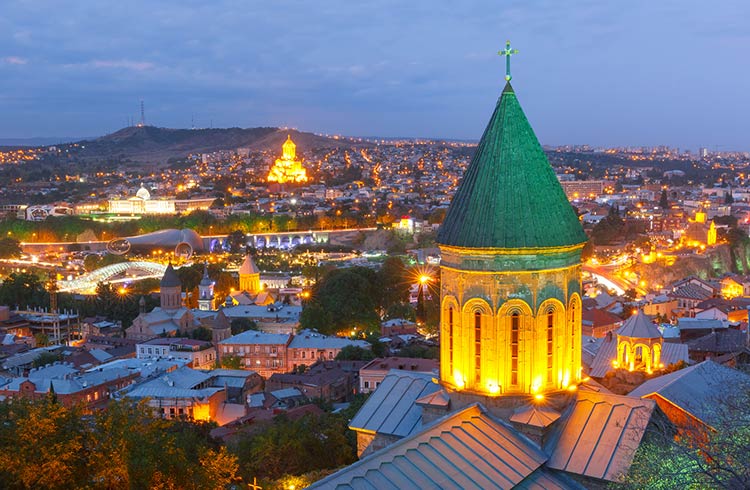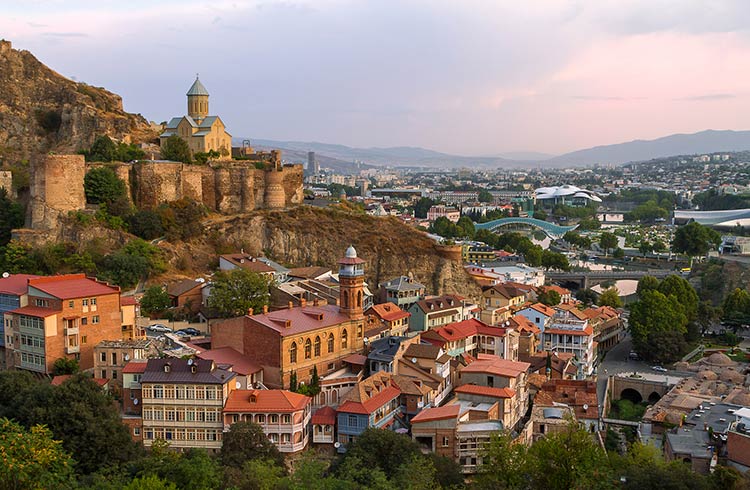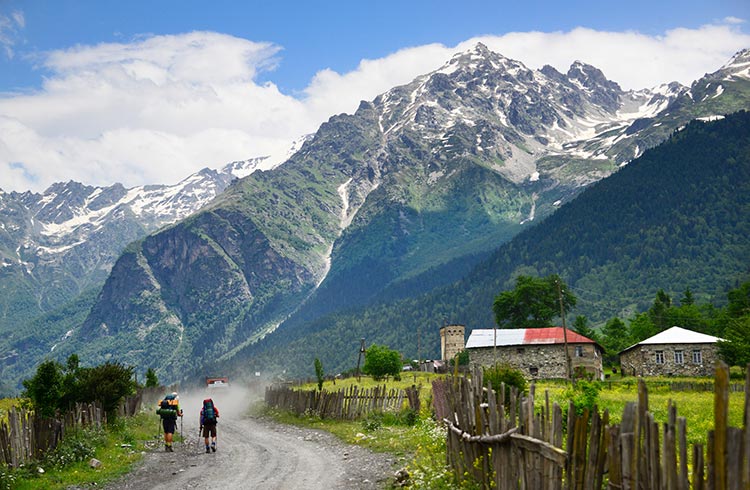The Political Situation in Georgia: What You Should Know
What is the political situation in Georgia? Is there a real risk of terrorism for travelers? Travel writer Paola Totaro investigates.
 Photo © Getty Images/KavalenkavaVolha
Photo © Getty Images/KavalenkavaVolha
If you’re interested in traveling to this intriguing part of the world, it’s possible you’ll have read headlines about political unrest in Georgia.
- Politics in Georgia
- Photography laws in Georgia
- Tension in Abkhazia and South Ossetia
- Hire a local guide
- Is there a terrorism threat in Georgia?
- Listen to The World Nomads Podcast: Georgia
Politics in Georgia
Certainly, over the centuries, Georgia has been the subject of great rivalry between surrounding powers, including Persia (now Iran), Russia and Turkey before Russia annexed Georgia in the 19th Century.
But, the Georgians are fiercely independent people, with an indomitable spirit, principally Christian in faith and they have long refused to bow to anyone.
When the Soviet Union collapsed, Georgia emerged to declare independence in 1991 but once again its geography has meant tension, with Russia worried about increasing US economic interests in the country and the Georgian desire to join NATO and the EU.
Traveling to the places that illustrate this long and proud history of fighting for autonomy – from churches and monasteries to forts and strategically placed bridges built by the warrior Queen Tamar nearly 1,000 years ago – are all essential to discovering Georgia.
Photography laws in Georgia
While mobile phones are ubiquitous these days, be aware photography around military barracks or installations, as well as infrastructure such as power stations, is not tolerated.
Some cultural sites also have photography restrictions – look out for signs or ask your guide.
Travelers have also reported being stopped from taking photos in places such as the Presidential Palace in Tbilisi. It is always best to ask for permission and better to be safe than sorry.
Tension in Abkhazia and South Ossetia
Today, the only two parts of Georgia that travelers are discouraged to venture into are the separatist regions of Abkhazia and South Ossetia. There was a brief war in 2008, thanks to Moscow’s support for their continuing political separation.
Tensions remain high in both breakaway regions, and despite intense clearing work by several specialist charities, government travel advice in the UK and US continues to warn of a potential risk of landmines and unexploded ordnance in the parts of these regions where military operations have unfolded.
Most western governments also do not recognize the unilateral declarations of independence made by the two regions, so check if your country offers any kind of consular assistance in these areas if you choose to ignore warnings and end up needing diplomatic help.
You should be aware too that the so-called Administrative Boundary Lines with Abkhazia and South Ossetia are generally not marked, so if you are taking a road trip, be careful not to cross them inadvertently, as you could risk being arrested.
Hire a local guide
Travelers who plan hiking close to these borders are advised not to go it alone but to hire local, professional guides.
Importantly, it is illegal under Georgian law to enter the country from Russia via South Ossetia or Abkhazia, and if you do enter this way, you could face criminal prosecution – which carries big fines and/or a prison sentence.
If your passport has entry or exit stamps from the separatist areas, the Georgian authorities may consider this as an illegal entry too.
Keeping a copy of your passport in a safe place is important for any traveler.
Is there a terrorist threat in Georgia?
Apart from these two areas of instability, the political situation in general in Georgia is calm, and visitors are more likely to experience a friendly welcome and spirited hospitality from locals rather than anything unpleasant.
Small-scale political protests and rallies, particularly in the administrative capital, Kutaisi, outside the old parliament building in Tbilisi and occasionally in Batumi, do occur relatively regularly but do not represent a threat to visitors.
Be sensible and avoid any type of protests or large demonstrations.
Of course, terrorist attacks in Georgia can’t be ruled out – terrorism can occur anywhere in the modern world, and can affect foreign visitors as well as places visited by foreigners.
Crime is low in Georgia compared to many European and American cities, but always be careful with your belongings and avoid showing signs of wealth that may cause pickpockets or potential thieves to target you.
Listen to The World Nomads Podcast: Georgia
Related articles
Simple and flexible travel insurance
You can buy at home or while traveling, and claim online from anywhere in the world. With 150+ adventure activities covered and 24/7 emergency assistance.
Get a quote

1 Comment
This is one awesome article. Will read on...